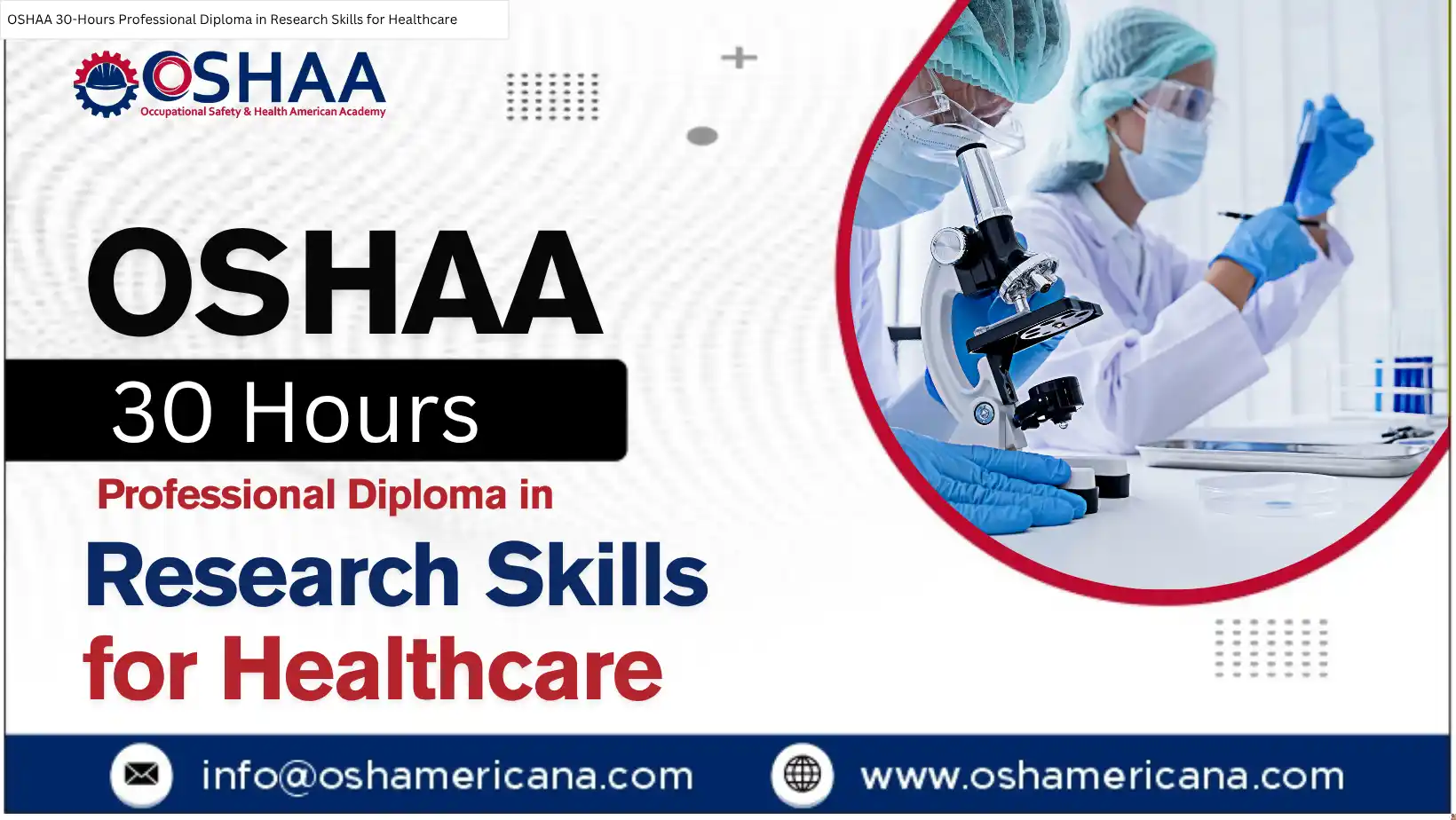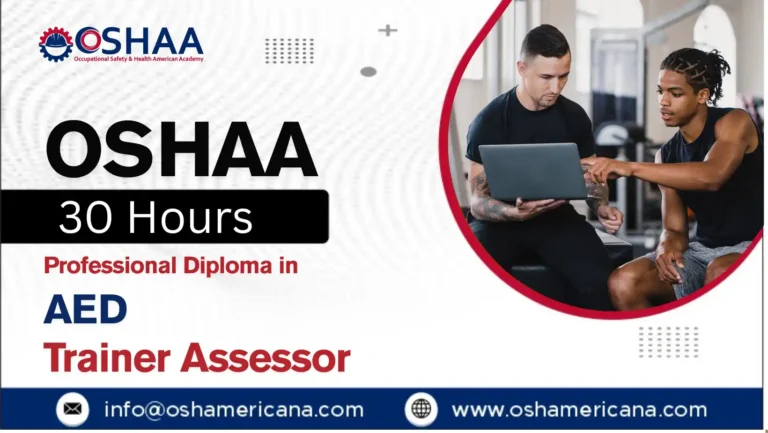In today’s evidence-driven healthcare environment, professionals are increasingly expected to contribute to and engage with research to improve patient outcomes, support clinical decision-making, and advance medical knowledge. The OSHAA 30-Hours Professional Diploma in Research Skills for Healthcare offers a structured and comprehensive pathway for participants aiming to enhance their research capabilities within a healthcare context.
This intensive 30-hour diploma programme is designed to equip participants with the essential tools and knowledge to undertake high-quality research. From foundational methodologies to practical data analysis, the course offers a balance of theoretical understanding and hands-on application, ensuring that participants can immediately implement their learning in real-world healthcare settings.
Participants will benefit from a learning experience that aligns with international research standards while reflecting the specific needs and challenges of healthcare environments. The course incorporates case studies, interactive assignments, and guided project work, helping participants to contextualise their learning within their specific fields of practice.
On completion of the OSHAA 30-Hours Professional Diploma in Research Skills for Healthcare, participants receive a recognised certification that attests to their competence in healthcare research. This credential enhances professional credibility and supports career progression in both clinical and academic settings.
OSHAA 30-Hours Professional Diploma in Research Skills for Healthcare
Study Units
Learning Outcomes
Introduction to Healthcare Research and Evidence-Based Practice (3 Hours)
- Understand the role and importance of research in modern healthcare settings
- Define evidence-based practice and its application in clinical decision-making
- Identify key types of healthcare research and their impact on patient outcomes
- Recognise the relationship between research, policy, and practice
Formulating Research Questions and Objectives (3 Hours)
- Construct clear, focused, and researchable questions
- Distinguish between research aims, objectives, and hypotheses
- Apply frameworks such as PICO to develop structured research questions
- Align research objectives with healthcare priorities and ethical guidelines
Research Design and Methodologies in Healthcare (4 Hours)
- Differentiate between qualitative, quantitative, and mixed-methods approaches
- Select appropriate research designs based on study objectives
- Understand the strengths and limitations of common research methodologies
- Develop methodological frameworks suited to healthcare environments
Literature Review Techniques and Academic Sourcing (6 Hours)
- Conduct systematic and narrative literature reviews
- Utilise academic databases and search strategies effectively
- Apply critical reading and synthesis skills to evaluate sources
- Manage references and citations using standard academic tools
Quantitative and Qualitative Data Collection Methods (3 Hours)
- Identify common tools and techniques for data collection in healthcare research
- Design and apply surveys, interviews, and observational tools
- Recognise challenges and biases in data collection processes
- Ensure reliability and validity in data gathering
Ethical Considerations in Healthcare Research (4 Hours)
- Understand ethical principles governing healthcare research
- Identify key issues including consent, confidentiality, and data protection
- Comply with institutional review board (IRB) or ethics committee requirements
- Recognise ethical challenges in vulnerable populations and sensitive topics
Data Analysis and Interpretation in Healthcare Studies (4 Hours)
- Apply basic statistical concepts to analyse quantitative data
- Use thematic analysis for qualitative data interpretation
- Interpret and present data in a meaningful and transparent manner
- Draw conclusions that are valid, ethical, and relevant to healthcare practice
Critical Appraisal of Research Literature (3 Hours)
- Evaluate the quality and credibility of research publications
- Identify methodological strengths and weaknesses in studies
- Apply appraisal tools such as CASP or PRISMA for structured review
- Judge the applicability of research findings to healthcare contexts
Course Benefits – OSHAA 30-Hours Professional Diploma in Research Skills for Healthcare
- Enhances participants’ ability to conduct and contribute to high-quality healthcare research
- Develops critical thinking and analytical skills for evidence-based decision-making
- Strengthens understanding of ethical standards and regulatory requirements in research
- Equips participants with practical tools for designing, conducting, and presenting research
- Supports career advancement in clinical, academic, and administrative healthcare roles
- Improves capability to appraise existing literature and integrate findings into practice
- Encourages a culture of continuous improvement and innovation in healthcare delivery
- Increases confidence in formulating research questions and applying appropriate methodologies
- Offers a globally recognised certification to boost professional credibility
- Prepares participants for further academic study or research-led roles in the healthcare sector
The OSHAA 30-Hours Professional Diploma in Research Skills for Healthcare is ideal for professionals across the healthcare sector who wish to build or strengthen their research capabilities. It is particularly suited for:
- Healthcare practitioners aiming to integrate evidence-based practices into their work
- Clinical staff involved in quality improvement or patient safety initiatives
- Health administrators and managers seeking to support data-informed decision-making
- Public health professionals working on research-driven health policies and interventions
- Allied health professionals interested in contributing to research projects or publications
- Medical educators and trainers responsible for promoting research literacy
- Early-career researchers and professionals preparing for academic study or research roles
This diploma is suitable for participants from diverse healthcare backgrounds who are motivated to enhance their contribution to research, improve patient outcomes, and support innovation in health services.







